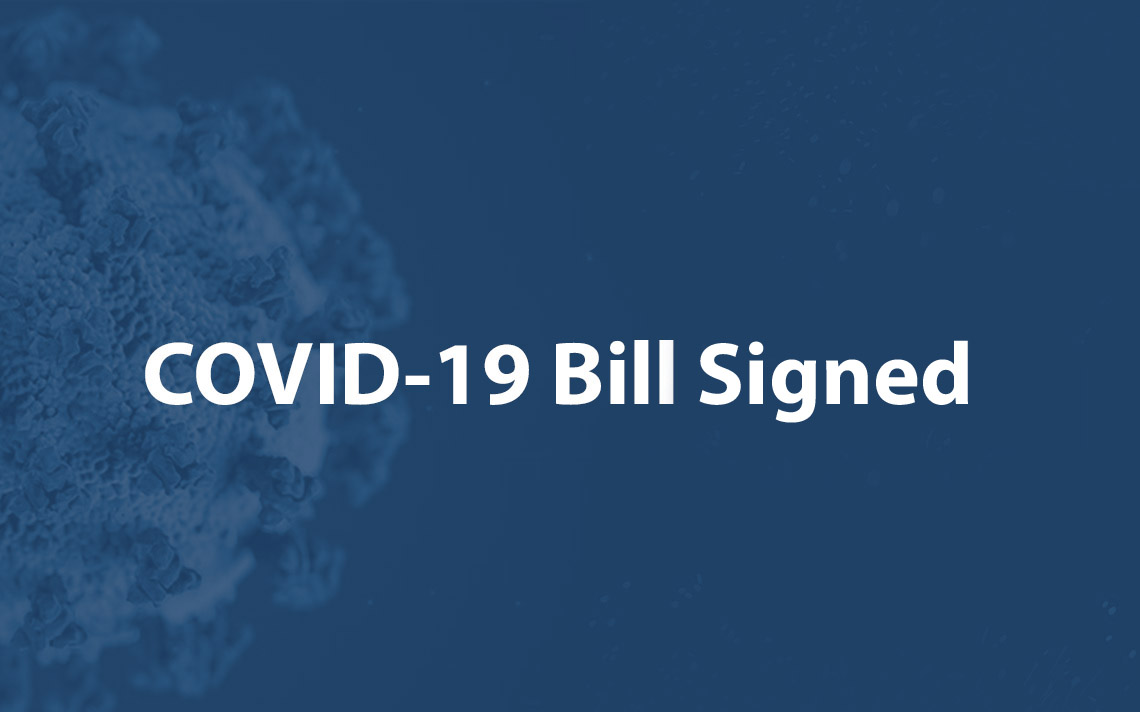On March 11, 2021, President Joe Biden signed into law a $1.9 trillion COVID-19 relief bill. The bill includes the following:
- Stimulus Checks
- $1,400 per individual earning up to $75,000.
- $2,800 for married couples earning up to $150,000.
- Payments decline above these thresholds and phase out entirely above $80,000 for individuals and $160,000 for married couples.
- Federal Unemployment Benefits
- $300 per week boost to unemployment benefits through Sep. 6, 2021.
- The first $10,200 of unemployment benefits are exempt from taxes.
- Applies only to households with incomes under $150,000.
- Paycheck Protection Program (PPP)
- The PPP program will receive $7 billion.
- Makes more non-profitable organizations eligible.
- PPP is currently taking applications for second-round loans.
- Other Programs for Small Businesses
- Emergency Injury Disaster Loan Program (“EIDLP”) will receive $15 billion, which provides long-term, low-interest loans from the SBA.
- The EIDLP will prioritize severely impacted small businesses with fewer than 10 workers.
- $25 billion to a new grant program specifically for bars and restaurants. Eligible businesses may receive up to $10 million.
- Child Tax Credit Expansion
- Temporary boost to $3,000 credit per child, or $3,600 for each child under 6.
- Credit boost begins to fade out for individuals earning more than $75,000 per year, or $150,000 per year for married couples.
- Families who are not eligible for the boost will still be able to claim the normal $2,000 credit per child.
- Optional Paid Sick and Family Leave & Tax Credits
- The bill does not reinstate mandatory paid family and sick leave.
- But the bill does provide tax credits to employers who voluntarily choose to offer these benefits through Oct. 1, 2021.
- Education and Child Care
- $130 billion will go to K-12 schools to help students return to the classroom. The funds will remain available through Sep. 2023.
- $40 billion to colleges and $39 billion to child care providers.
- Housing Aid
- $19.1 billion will be sent to state and local governments to help low-income households cover back rent, rent assistance, and utility bills.
- $10 billion to help struggling homeowners pay their mortgages, utilities, and property taxes.
- Extension of Food Stamp Benefits
- Extends the 15% increase in food stamp benefits through Sep. 2021.
- Health Insurance Subsidies and Medicaid
- The bill makes federal premium subsidies for Affordable Care Act policies more generous and eliminates the maximum income cap for two years.
- Enrollees will pay no more than 8.5% of income toward coverage, and those earning more than the current cap of 400% of the federal poverty level are eligible to enroll.
- Workers on COBRA, even if they were fired, are eligible for assistance covering up to 85% of their COBRA premium through Sep. 2021.
- Aid to States and Tribes
- $195.3 billion to States and Washington D.C., $130.2 billion to local governments and cities. $20 billion to Tribes and $4 billion to territories.
- Vaccines and Testing
- $50 billion to the Federal Management Agency.
- $47.8 billion towards testing, contract tracing and mitigation.
- $14 billion to develop, distribute, and administer the vaccines.
- $7 billion to hire 100,000 public health workers. \
Here’s What is NOT Included in The Bill:
- $15 Per Hour Minimum Wage
- Not allowed under the rules of budget reconciliation.
- Mortgage Forbearance and Foreclosure Relief
- Mortgages owned by private lenders aren’t included in the relief.
- However, foreclosures on federally backed mortgages have been banned through June through an executive order in February.
- Extension of Eviction Moratorium
- The bill does not include extending the eviction moratorium, which is set to expire on March 31, 2021.
- Due note, however, that some states have passed their own eviction moratoriums that may extend passed the federal expiration date.

